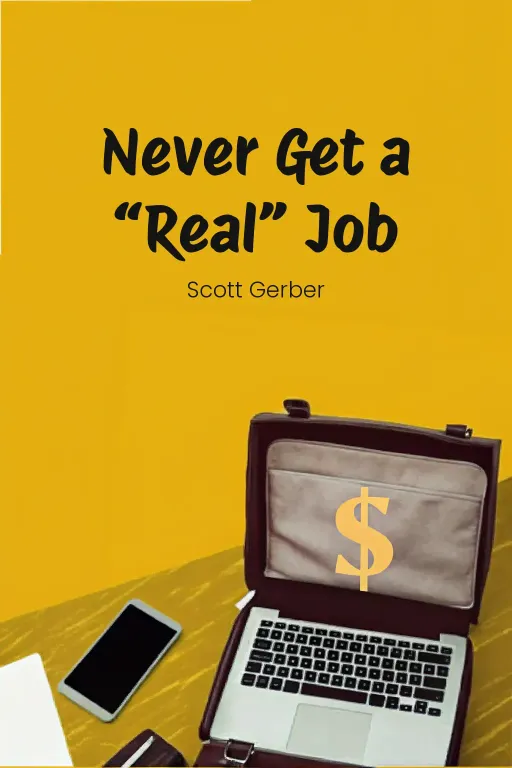
Wealth DNA: Wire Yourself Rich Now!
Podcast by Let's Talk Money with Sophia and Daniel
Mastering the Inner Game of Wealth
Wealth DNA: Wire Yourself Rich Now!
Part 1
Daniel: Hey everyone, and welcome! Today we’re diving into something that could really change how you see money. We're going to talk about why some people just seem to effortlessly attract wealth, while others are constantly struggling. Sophia: Yeah, and I’m guessing it's not just because the ultra-rich cornered the market on lucky pennies, right? So Daniel, spill the beans. Is it about what’s in our bank accounts, or what’s going on upstairs? Daniel: You nailed it, Sophia! It's all about your “money blueprint,” as T. Harv Eker calls it in his book, Secrets of the Millionaire Mind. Basically, it’s an internal script, shaped by your past, that dictates everything: how you think about money, how you manage it, and how you grow it. Eker’s big point is if you change that blueprint, you can rewrite your whole financial future. Sophia: "Internal script"? Seriously, that sounds like my subconscious is stuck running on dial-up! Daniel: I know, right? But here’s the exciting part. We're going to unpack three keys to building that millionaire mindset, and the first part is all about how your childhood experiences have secretly wired your relationship with money. And fair warning: it might get a little uncomfortable. Sophia: Oh, fantastic. So, my parents constantly reminding me that "money doesn't grow on trees" might be why I hesitate to splurge on, say, a slightly-too-expensive cup of coffee? Daniel: Probably! After that, we’ll jump into Eker’s famous 17 "Wealth Files." These are the essential mindset shifts that separate the wealthy from everyone else. You can think of it as Millionaire Habits 101. Sophia: Okay, let me take a stab. Lesson one: Stop binge-watching Netflix and start paying attention to your bank balance? Daniel: Getting warmer! And finally, we’ll wrap up with the super practical stuff—the daily habits you can use to actually build wealth, step by step. Sophia: Alright, sounds like there is some serious mental re-wiring ahead. So, let’s dive in and see what this whole “blueprint upgrade” is all about.
Understanding the Money Blueprint
Part 2
Daniel: So, let’s kick things off by defining Eker's idea of a "money blueprint." Think of it like this: it's like your personal financial thermostat, preset to a certain temperature setting. No matter how much cash comes your way, you'll subconsciously adjust things to stay within that comfort zone. Sophia: Right, so if my thermostat's stuck on "broke," winning the lottery wouldn't change a thing? I'd still find a way back to square one? Daniel: Precisely. And that’s why a lot of lottery winners end up broke pretty quickly. Their internal settings just aren't geared to handle or maintain that kind of wealth. It’s not some conscious self-sabotage, but rather, subconscious habits that bring them back to their usual baseline. Sophia: Hmm, that’s a bit unsettling, but also strangely...comforting? Like, it's not just that I'm bad with money, but that I was pre-programmed to struggle. Where does this "programming" come from, anyway? Daniel: Great question! Eker points to three main sources: verbal programming, modeling, and significant life events. Let’s start with verbal programming – those phrases we picked up as kids. Sophia: Oh, you mean the classics? "Money doesn't grow on trees," "Rich people are greedy," "We can't afford that…" My parents' greatest hits, basically. Daniel: Exactly. They might sound harmless, but repeated often enough, they become core beliefs. If you constantly hear "We can't afford that," you might grow up always seeing money as something scarce. Sophia: So, my financial anxiety isn't just plain worrying – it's childhood memories echoing? That’s a little unnerving. Daniel: It is, but it's also empowering, because once you spot those scripts, you can challenge them! Let’s move onto the second influence: modeling. Kids often mimic what they see. Were your parents careful savers or big spenders? Did they see money as a tool or a burden? Sophia: Oh man, I remember my dad bringing home this massive TV, completely unnecessary. My mom lost it because he maxed out his credit card. So, yeah, not exactly a model of financial responsibility. Daniel: Right. Those kinds of behaviors shape your subconscious. If you grow up seeing money linked to conflict, you might unconsciously avoid it just to keep the peace, or repeat those impulsive habits, just thinking that's normal. Sophia: So, we're all just walking copies of our parents' money issues. Got it. What about those big "aha" moments? Like, do those financial incidents count as the third thing? Daniel: Yep! Significant life events, especially the tough ones, leave a big mark. Eker talks about a woman named Josey, who was always broke, even with a steady job. After some digging, she realized she linked money with tragedy because her father had passed away after a fight about finances. Sophia: Wow, that's... heavy. So, even though she wasn't consciously thinking about that event, it was still driving her behavior? Daniel: Exactly. In her subconscious, holding onto money meant inviting pain or loss. Until she changed that belief, no amount of income could change her financial situation. Sophia: So, it's not just about earning more or saving better – it’s about digging into those invisible triggers. Got it. But how do you even start to reprogram that kind of stuff? Daniel: Excellent question! Eker talks about awareness, disassociation, new beliefs, and action. Step one is awareness: identify the thoughts or habits about money that have been holding you back. Write down the phrases, patterns, or events that shaped your views on money as a kid. Sophia: Okay, so "money doesn't grow on trees," my dad's impulse buys, and that time I heard my parents arguing about bills… those go on the list? Daniel: Exactly. Then, step two: disassociate yourself from those beliefs. Realize they aren't universal truths, just learned scripts. Instead of "money is scarce," reframe it to "there are tons of opportunities to create wealth." Sophia: Hmm, that's easier said than done, though, right? Life doesn't exactly scream "abundance" when rent's due next week. Daniel: True, but that's where step three comes in: injecting new beliefs and patterns. Eker emphasizes daily affirmations, like "I deserve wealth" or "Money comes to me easily." These help rewrite your subconscious over time. Sophia: So, I'm just talking myself into a fortune? Daniel: Sort of! But affirmations only work if you take action – step four. Take steps that align with abundance. Automate savings, cut back on impulse buys, or invest in your financial education. Sophia: Okay, so awareness, reframe, affirm, act. It's like brain surgery for my wallet. Daniel: Exactly! And it’s not just theory; Eker himself lived this. He spotted his own self-sabotaging habits, earning big, then losing big, and then he rewired his blueprint to finally sustain wealth. Sophia: So, if a guy who kept hitting the "financial reset" button can reprogram himself, maybe there's hope for me, too. Alright, let’s see where this reprogramming journey takes us!
The Wealth Files: Key Mindsets of the Rich
Part 3
Daniel: Alright, so that foundation in place sets us up to “really” embrace new financial mindsets and behaviors. And that leads us right into Eker's key idea: the Wealth Files. Think of these as mental blueprints. They highlight how wealthy people approach money differently than those who struggle. Each Wealth File contrasts these opposing beliefs and gives you strategies to align yourself with an abundance mindset. Let's unpack a few of the big ones today, starting with Wealth File 1: taking responsibility versus playing the victim. Sophia: Ah, the classic blame game. So, are you in charge, or are you just along for the ride, blaming the waves, right? What’s Eker’s take on all this? Daniel: Spot on! Eker’s first Wealth File basically says that wealthy people create their own financial reality. They own their decisions, their mistakes, and their successes. People who struggle financially, they tend to fall into a victim mentality. It’s a subtle but powerful switch from "life happens to me" to "life happens by me." Essentially, it's about taking responsibility for where you are financially, regardless of what's happening around you. Sophia: Easier said than done, though, wouldn't you say? I mean, it's not always blaming the government, right? Sometimes, life “really” does throw you a curveball—medical bills, job losses. Can we “really” "create" our way out of that? Daniel: True, Sophia. Eker's not saying bad things don't happen. It's about how you react to them. That's the “real” game-changer. Let's talk about Josey, an operating-room nurse. She shared her story at one of Eker’s seminars. Earned a fantastic salary, but was always broke. On the surface, she blamed the high cost of living, but digging deeper, a childhood trauma shaped her money relationship. Sophia: Oof, sounds intense. What was the deal? Daniel: Well, as a child, Josey saw her father have a fatal heart attack during an argument about money. In her mind, wealth and conflict became linked. So, without even realizing it, she started spending everything she earned. Almost as if holding onto money would bring the chaos she feared. Sophia: Wow, talk about subconscious sabotage. So even with a great job, her instincts were working against her. That’s… that's rough! Daniel: It is! But here's the good part. Once Josey understood that her financial problems weren't external, that they were coming from within, she completely changed her thinking. She started seeing money not as a source of pain, but as a tool for security and opportunity. That change allowed her to make better choices, like saving and investing intentionally, instead of just bleeding out what she had. Sophia: Okay, so first, stop pointing fingers—at the economy, your family, childhood traumas—look inward. But what practical steps do you take? How does someone like Josey rewire those deep-seated beliefs? Daniel: Eker suggests a dual approach. First, identify those negative beliefs—write them down. If you catch yourself thinking, "I'll never make enough money," challenge that thought. Where's that coming from? Is it even true? Then, replace those thoughts with positive alternatives. Instead of "I can't afford it," try, "How can I create more income to afford it?" Seriously, language is powerful in reshaping habits. Sophia: So, journaling, TED Talk-style affirmations, and betting on yourself. I got it. So, what’s next? What’s Wealth File number two? Daniel: Next is the mindset of playing to win versus playing not to lose. It's such a critical distinction. Wealthy people set bold goals, have a growth mindset. People who struggle, though, they tend to focus on protecting what they have. Avoiding risk, staying comfortable, and ultimately, boxing themselves out of opportunities. Sophia: Alright, let me play devil's advocate here. Ambition is great and all, but isn’t playing it safe sometimes… smart? I mean, there’s a reason people don’t YOLO their savings into a startup, right? Daniel: For sure, calculated risks are critical. The problem comes when fear is driving your decisions. A poverty mindset is all about "What if I fail?" instead of "What if this works?" Eker tells a story about his own career. Early on, he hesitated to expand his business because he was afraid of losing the small amount he was making. Sophia: So he’s clinging onto a life raft instead of building a bigger boat, huh? Daniel: Exactly! Once he shifted that script and asked, "How can I achieve more and create value for others?" his whole world changed. He started taking measured risks. He expanded his business, invested in new things. And you know what happened? His wealth grew because his mindset was focused on growth, not just staying afloat. Sophia: Okay, so stop planning your life around worst-case scenarios, wonder what doors might open. Any action steps for those of us who aren’t quite ready to jump into real estate just yet? Daniel: Start small by setting ambitious but achievable financial goals. Say you want to make $10,000 a year in passive income. Break that down into steps. Research side hustles, automate your savings, look into investment platforms. Don't eliminate risk altogether, but approach it strategically and with some enthusiasm. Sophia: Hmm, I like that—dream big, prep smart. Makes sense. What's the next Wealth File? Daniel: Let's get into Wealth File number five: focusing on net worth instead of income. This is a big one because most people just equate their paycheck with financial success. Eker says that true financial health is about your net worth. Everything you own—assets like savings, investments, property—minus your debts—loans, credit cards, that kind of thing. Sophia: Okay, so the "big picture" approach. I gotta say, most of us were taught to chase higher incomes, but not “really” taught to think about how much we're keeping or growing. It's like we're measuring the wrong thing completely. Daniel: Exactly! Take Sue, for example. Instead of leveling up her lifestyle every time she got a raise, she kept things simple and invested. She sold her house in a hot market, downsized, and used the money to buy income-generating assets, like rental properties. By prioritizing net worth, she was financially independent by 30. Sophia: So instead of buying a flashier car, she bought freedom. That… probably means I shouldn't be looking at the sports car section on Craigslist, huh? Daniel: Let me put it this way: the sports car won’t thank you in retirement, but a healthy investment portfolio definitely will. Sophia: Alright, pragmatic wealth-building over shiny distractions. Makes sense. So wrap it up for me—how do we start applying this one? Daniel: Start by creating a snapshot of your current net worth. List everything you own, everything you owe, and track it every quarter. Instead of just thinking about earning more, think about how you're managing, investing, and growing what you already have. The secret isn't just making money—it's keeping it and growing it! Sophia: Alright, Daniel. I’m starting to see a pattern here—it’s a lot less about luck, and a whole lot more about mindset and smart, deliberate action. What’s Wealth File number eight?
Practical Actions for Financial Transformation
Part 4
Daniel: Okay, so now that we’ve got the money blueprint clear, let's talk about the specific attitudes and strategies that actually drive wealth creation. Eker is adamant that just thinking positively won't cut it; our actions have to align with our beliefs. That’s where his practical tools come in – bridging that gap between thought and action. He emphasizes four key things: affirmations, building positive associations with money, networking with successful people, and creating multiple income streams, especially passive income. Sophia: Ah, finally, the "what do I actually do" section. Let's start with affirmations. I’ve always been a bit skeptical of these. Are we seriously suggesting that talking to yourself in the mirror can actually change your bank balance? Daniel: It's not just about mindlessly repeating things; it's about rewriting deeply ingrained beliefs. Think of affirmations as mental workouts—they target your subconscious, replacing negative thoughts with empowering ones. Eker suggests things like, "I am an excellent money manager" or "I deserve to be wealthy." When you say them consistently and with real conviction, they start to reshape how you view money and, naturally, how you handle it. Sophia: So, it's about overriding those old tapes, like my dad's "money is the root of all evil" mantra? But what if you feel like you're lying to yourself when you say, "I am wealthy," and your bank account is… well, let’s just say it has humble aspirations? Daniel: That's a common issue, and Eker addresses it. The key is persistence. At first, your brain will push back, screaming, "This isn't true!" But, over time, repetition helps you believe in that new reality. He even suggests looking yourself in the eye in the mirror – that creates a stronger connection to the message and helps you embody that belief. Sophia: Alright, I’ll give it a shot, but I'm drawing the line at public mirror-talking. What about real-world results, then? Any success stories from this affirmation thing? Daniel: Tons! Eker talks about a seminar attendee who always felt unworthy of wealth. She committed to saying, "I deserve wealth, and money flows to me easily" for 30 days. She felt silly at first, but as her belief grew, so did her confidence. She started budgeting better and even pursued an investment she'd been avoiding. Small steps at first, sure, but they built up into significant financial gains. The big lesson here? Inner work drives outer change. Sophia: Interesting. Okay, step one – rewire your internal dialogue. Next up – building positive associations with money. Because let’s be honest, money comes with a lot of emotional baggage. Daniel: Exactly, Sophia. A lot of people link wealth with greed, guilt, or even shame, but Eker flips that. He suggests cultivating gratitude and admiration for money and success. Like, instead of envying someone with a fancy car, send them good vibes. Celebrate their abundance – it trains your mind to think of wealth as something good and accessible, not just for other people. Sophia: So next time I see someone cruising in a shiny convertible, I'm supposed to cheer them on instead of muttering, "Must be nice"? Sounds like… advanced emotional work. Daniel: It can be at first, especially if you’re used to feeling jealousy. But it's about shifting your energy around money. Eker tells about this woman who grew up resenting wealthy people because her family struggled. Instead of getting bitter, she started visiting fancy neighborhoods, flipping through luxury magazines, and consciously swapping her bitterness for curiosity and inspiration. Over time, that shift helped her launch a side business that really bumped up her income. Sophia: So admiration beats envy—and apparently pays better. Got it. What’s the next action step for us normal folks trying to get on board with this millionaire mindset? Daniel: Networking with successful people. This one’s simple but powerful. Surrounding yourself with people who embody what you want to become changes not just your mindset but also your opportunities. Eker calls it the power of proximity — being around wealth and success makes it feel normal in your world. Sophia: Okay, but what does that actually mean? Am I supposed to just hang around five-star hotels hoping rich people will adopt me? Daniel: Not exactly! It's about getting involved in places where successful people hang out -- like seminars, professional groups, or entrepreneur meetups. The idea is to learn their habits and absorb their attitudes. Take Natalie, for example – she joined a small entrepreneur group, even though she felt insecure about not being as financially secure as the others. Their advice and support pushed her to take risks, like saving for investments, instead of staying in her comfort zone. Eventually, those connections helped her move from a regular job to being her own boss. Sophia: Alright, I see the point—but wouldn't being the broke one in the room feel like… a constant reminder of what you’re not? Daniel: That’s actually the best place to be! You learn the most when you’re around people who are ahead of you, whether it’s financially or professionally. Instead of focusing on what you lack, focus on what you can gain—their stories, their strategies, even opportunities they might share. Remember, ambition thrives in a stimulating environment. Sophia: Fair enough. So, network smart. Now, can we finally talk about the “multiple income streams” thing? Everyone throws that around, but how does it actually work? Daniel: Glad you asked. Eker emphasizes shifting from active income – where you trade time for money – to passive income, which works independently of your time. Think rental properties, dividends, royalties, or automated businesses. The ultimate goal is freedom – when your passive income covers your living expenses, work becomes a choice, not a necessity. Sophia: Sounds great in theory, but passive doesn’t mean "effortless," right? How do you actually get started? Daniel: Not effortless, no, but achievable with a deliberate strategy. Start by putting a portion of your earnings into a "freedom account"—a savings pot specifically for passive-income investments. Then, research options that interest you. And yes, it takes time, learning, and a bit of risk, but the reward is financial independence. Eker tells about a man who went from a regular office job to investing in real estate. He started small, with one rental property funded by his freedom account. Now, his rental income is more than his living expenses, so he’s completely financially free. Sophia: Okay, so it’s less about some overnight miracle and more about disciplined, consistent steps. Do you think someone with a modest salary can actually pull this off? Daniel: Absolutely. The secret is starting small and steadily growing. Even investing $50 or $100 a month can build momentum. It’s about consistency and seeing the long game. Financial well-being isn’t about being flashy; it’s about sustainability. Sophia: Right, I’m starting to get the bigger picture now. From rewriting beliefs to building networks and generating this passive income—it's not some mysterious secret, but it does sound like real work. Daniel: It is, Sophia. But according to Eker, the rewards go way beyond money. It’s about growth, confidence, and building the life you “really” want—not one limited by fear or restriction.
Conclusion
Part 5
Daniel: Okay, Sophia, so what have we gleaned today? It's pretty obvious that wealth isn't just cold, hard cash; it's deeply rooted in your mindset. Whether it’s understanding your personal money blueprint, diving into the 17 Wealth Files, or actively doing affirmations, networking, and setting up passive income streams, it all begins with what's going on inside your head. Sophia: Exactly. Shift your thinking, and naturally, your choices will align with that. I mean, the numbers are just gonna reflect that shift, right? Essentially, it boils down to owning your stuff, ditching the whole "safety-first" mentality, and, frankly, putting in the effort to level up your financial intelligence. Daniel: Precisely! So, here’s a practical takeaway for everyone listening: Begin small, but be deliberate. Just jot down one limiting belief you have about money—only one—and really question it. Then, swap it out for a more empowering belief. Next, pinpoint one actionable thing you can do this week to nudge yourself toward financial growth, whether that’s finally getting a budget in place, learning about investing, or just tweaking your attitude a bit. Sophia: Alright, so I can't keep blaming my dwindling bank balance on some, like, deep-seated financial trauma from the past. I guess it’s time for a serious mental reboot. Daniel: That’s exactly the attitude we need! Keep in mind, rewiring your money blueprint isn't an overnight thing, but like Eker says, “Think rich to get rich.” It's a continuous process. Sophia: So, there's no express elevator to the millionaire mindset, huh? It’s more like climbing stairs, one thoughtful step at a time. Got it. Daniel: Exactly, Sophia. And who knows? One day, maybe you won’t just be ogling that convertible—you’ll be cruising in it! Sophia: Only if it’s paid for in cash, naturally. Daniel: Smart! So, until our next chat, keep rewiring, keep leveling up, and keep setting your sights higher. Sophia: And hey, don’t forget to stash some cash away in that freedom account. Catch you next time!









